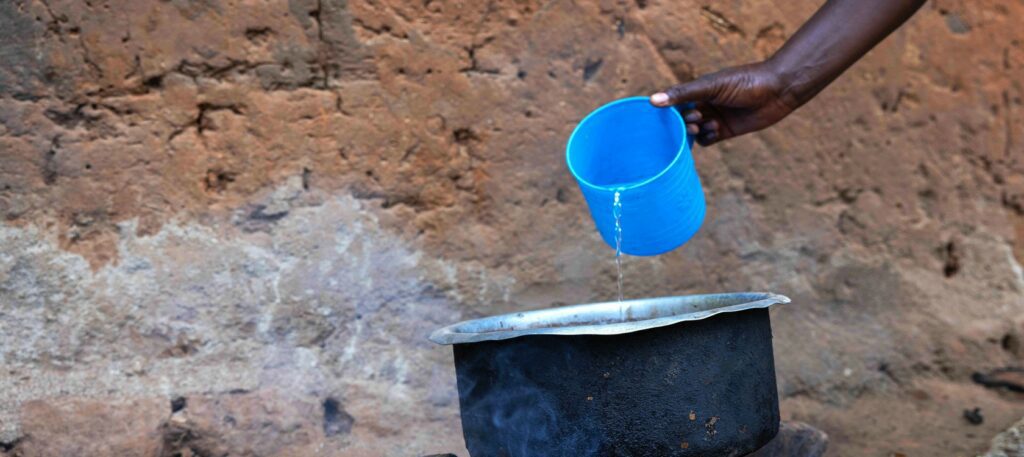Bordering Tanzania, the districts of Mbarara and Isingiro face constant water stress, with many residents lacking regular access to drinking water. The situation is worse in the refugee areas of Nakivale, hosting over 150,000 refugees, and Orushinga, accommodating more than 7,500 refugees from various places like the Democratic Republic of Congo (DRC), Tanzania, Sudan, Eritrea, Rwanda, and others.
Not enough for everyone
“The standpipes are only open for two or three hours a day, depending on the season. Here in Kajaho, two standpipes serve to two villages, representing 2,000 families,” says Abalo Kilbaforce. “People come hours before they open, lining up to fetch water. But sometimes there isn’t enough for everyone, and we may go a day or even two without water.”
The situation is no better in the Nakivale area, where thousands of refugees live. “I’m the father of four children, and we live on just 6 liters of water a week,” says Bertin Birindua, a 50-year-old native of DRC. “Moreover, the water quality is really bad, making the children constantly sick with diarrhea, coughing, and fatigue.”
Crumbling infrastructure
At the foot of the Kabale road treatment plant in the heart of the town of Mbarara, which supplies just under half of the town’s water, the Rwizi River has almost dried up. A diver has to spend his day underwater, clearing the pumping pipes clogged with sand, just to keep the water treatment plant running. A makeshift dam has been installed to redirect the flow to the pumps.
“Normally, the water is at least three metres higher,” says Dennis Muramuzi, Director of the national water operator NWSC in Mbarara. “But because of human activities, including agriculture, sand extraction and deforestation, we’re seeing the water level drop every year. We estimate that by 2030, we will have to close this station.”
In Nakivale, the problem is the same. “The lake from which we draw water has shrunk by half. We’re going to have a real problem supplying water to the refugee settlements over the next few years,” says Samuel KULU, UNHCR project manager.
A major new project
To meet these challenges, AFD is financing an ambitious new project: the construction of a new water treatment plant, located on the torrential Kagera River, and the installation of 58 kilometers of distribution network to the town and district of Mbarara.
Simultaneously, another project, supported by the European Union, aims to connect the refugee areas to this new water source. “We hope to cover 100% of the needs of the Mbarara district and reach a good part of Nakivale with this new water source,” says Olivier Pannetier, Project Manager at AFD’s Kampala office. “This is crucial for the region’s water supply.”
At the site of the future water treatment station on the Kagera River, workers are busy laying kilometers of pipes along the road. While they are making every effort to expedite the project, the works will have an impact on communities. “We have to ensure that everyone affected by the installation of the pipes has been compensated,” says Carl Delort, SOGEA’s site manager. “Additionally, constructing the plant to meet international environmental and social standards will take at least 16 months.”
Source link : https://www.afd.fr/en/actualites/relieving-water-stress-uganda-building-vital-infrastructure
Author :
Publish date : 2023-10-09 07:00:00
Copyright for syndicated content belongs to the linked Source.
